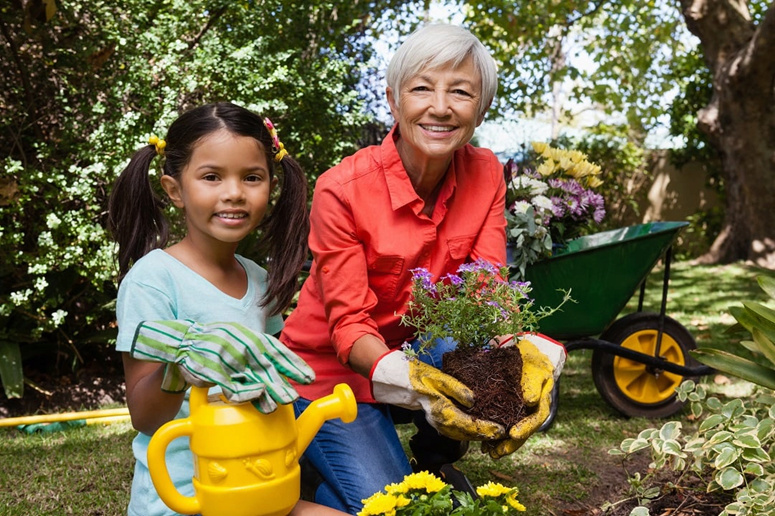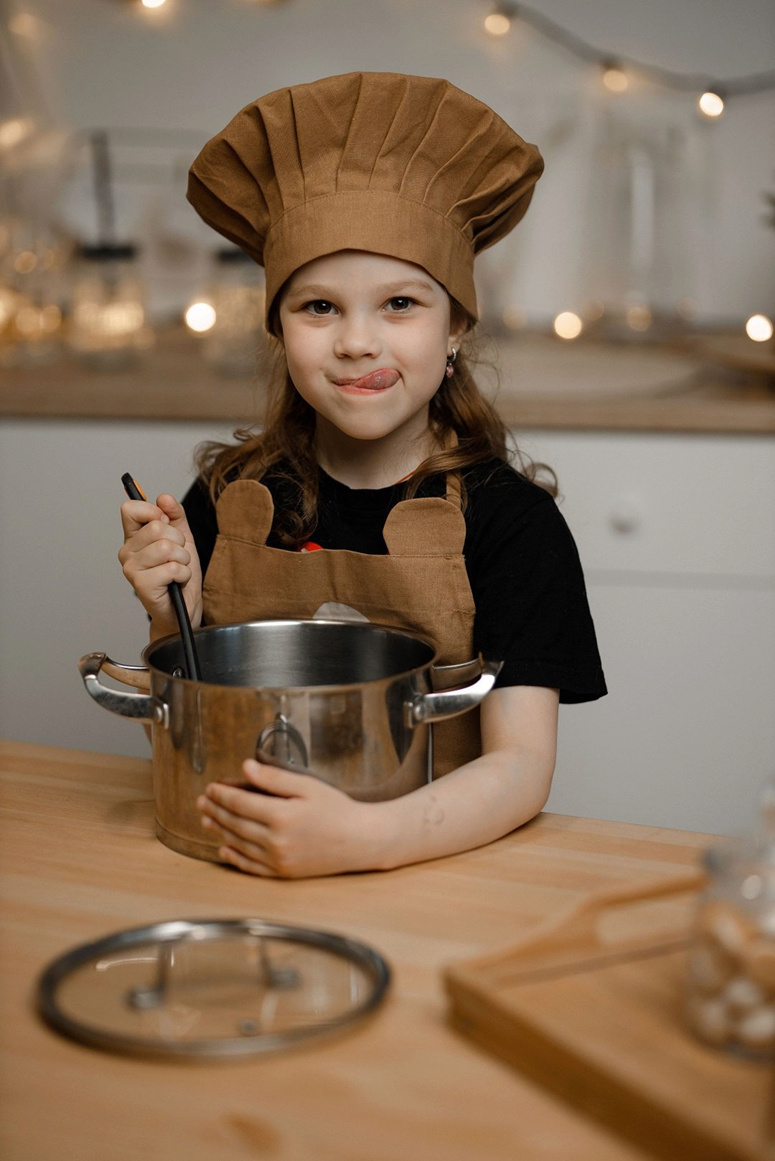Smart steps...to raise the child to be independent

A child aged 3 years and above tends to learn independence and discover the ways in which life matters are done, as the mother watches him experiment more than once. Here, parents must encourage him and be careful to teach him the basic steps to raise his independent personality, which constitutes a source of happiness for the child and not a burden on him. .
Children, Madam Mother, do not just want to be loved, but they need to feel that their presence leaves a positive impact in the eyes and hearts of their parents. Education professors have unanimously agreed that raising the sense of responsibility in children from a young age has a positive impact on the child’s psychology and independence.
Children, Madam Mother, do not just want to be loved, but they need to feel that their presence leaves a positive impact in the eyes and hearts of their parents. Education professors have unanimously agreed that raising the sense of responsibility in children from a young age has a positive impact on the child’s psychology and independence. And his social relationships in the long term.. For more details and more information, the meeting was with Dr. Hazem Shaheen, Professor of Pediatrics; To explain and interpret.
Smart steps to raise a child to be independent

Training a child from 3 years old to share - Image from AdobeStock
Take responsibility from a young age
There are many methods that can be adopted to develop this sense of independence in the child, making him successful in the future.
First, the child, from the age of 3 years and above, must be trained to be self-reliant in eating his food.
Cleaning up what caused it, for example: when a child spills milk, you should not shout at him, but rather say to him: “It's okay, we can clean it.”
Children aged 4 years can be asked to put napkins on the table and take care of the pet as well.
As for children at the age of six or seven, they begin by cleaning the table, watering the plants, and folding the laundry.
Knowing that no child likes to do household tasks, so you must deal intelligently and share in doing household chores as if they were fun activities.
Do not impose your orders on the child. Rather, wait until the child says, “I want to do it myself and I want to help,” and encourage him after he completes the task in a perfect way.
Not issuing orders
When you wake up early in the morning, you might ask: “What do you need to do to get ready for school?” Instead of screaming and being loud.
Teaching the child to be responsible for his behavior and actions, and that he can correct them himself and without punishment, such as apologizing for the bad behavior he has done, and this is better than punishing him.
Do you realize that there are many harms to the father not sharing the responsibility of raising children?
Do not rush to rescue your child from a difficult situation
Be honest about the responsibilities you have decided to undertake for yourself or for him. If you make a promise to your child; Don't make excuses for him later.
Teach the child to establish a daily schedule; In order to organize schoolwork, household tasks and recreational activities.
Rewarding the child for the work he does, this pushes him to take more responsibility, and he becomes more aware that he has his own expenses.
Assigning household tasks...in exchange for appreciation and gratitude

Assign your child household tasks that suit him and praise what he does - Image from pexels
There is a large segment of parents who have not raised their children properly, which is related to self-reliance and a sense of responsibility. Out of fear for them or excessive pampering for them.
This is wrong; It is necessary to accustom the child, whether a boy or a girl, to self-reliance starting at the age of three, in a way that is proportional to his abilities, and to monitor, guide, and teach him gradually.
Getting the child used to assuming his responsibilities at home first helps him build an independent personality on correct and sound foundations, and also makes the child able to face the difficulties and problems he will be exposed to in the future.
Therefore, it is necessary for the child to feel that there are some tasks that he must accomplish on his own, and the parents must repeat that he is responsible for carrying out these tasks.
The importance of distributing household tasks
Then, appreciation and gratitude must be shown to the child, and it is necessary to grant him his personal freedom. Such as choosing his clothes, practicing his favorite hobby, and playing his favorite games in his free time.
It is not acceptable for his parents to impose conditions or orders without allowing him to practice the activity he loves, which keeps him away from feeling completely independent.
Focus must be placed on dealing with the child with kindness and intelligence, otherwise the child will be unmotivated to carry out any tasks, and will feel alienated and unaccepted, to the point that his personality will be negative in the future.
Know the value of time and respect it
The child must be taught to adhere to punctuality and order, and to divide time between academic and recreational duties, practicing sports activities, and other matters.
- Helping the elderly and needy, such as grandfather and grandmother, and being sociable with them and helping them sit and walk, as this prompts the child to abandon selfishness.
- Moderate your love and pampering of the child, as excessive pampering makes the child reckless and unable to bear responsibility and face life.
When does the child begin to be trained to take responsibility?

Baby leans in and welcomes independence from age 3+ - Image from AdobeStock
An independent, responsible child is the key to success in school and public life. Allowing your child to carry out responsibilities in his own way makes him feel accomplished and proud and enhances the feeling of responsibility within him.
Kindergarten stage from 3 to 6 years old
The child can help with cooking, preparing meals, clearing the table, weeding the garden, and watering the flowers in the garden.
Primary school stage from 6 to 11 years old
Children work to maintain the order and cleanliness of their rooms, dispose of garbage and throw it in the container, and perform a number of tasks in the kitchen. Such as mopping dust, washing dishes, and rinsing the floor. They can also wash, dry, arrange, and put their clothes in the closet.
Enhancing the sense of responsibility

School plays a major role in promoting a child's independence - image from pexels
The school plays an important role in enhancing the sense of responsibility, instilling a spirit of respect, and enhancing self-confidence in the student. Through certain curricula offered to him.
Rewarding and praising the child is also very important, and it is necessary not to punish him when he does not perform tasks, as the goal is to teach him with love and without pressure.
She advises the mother to be a role model for her child. This is because her child imitates her in many matters, and she must provide him with assistance without giving orders and without a harsh tone, but rather with love.
The child relies on himself to eat, wear his shoes and clothes himself, and bathe on his own if he is 7 years old or older.
Source: websites

